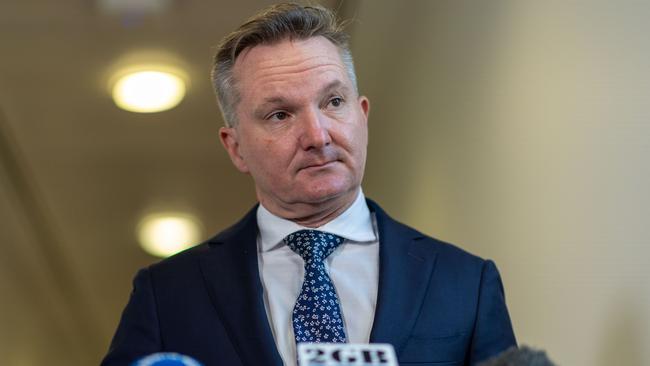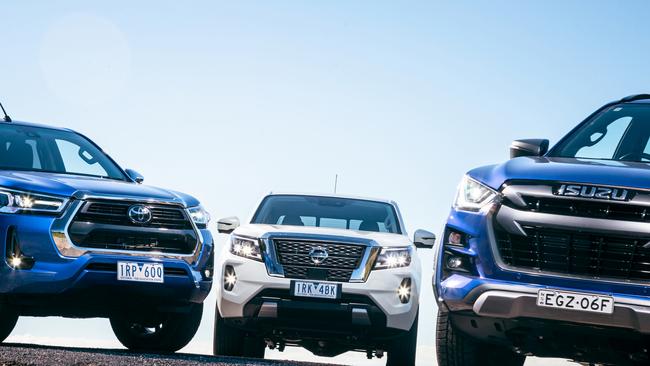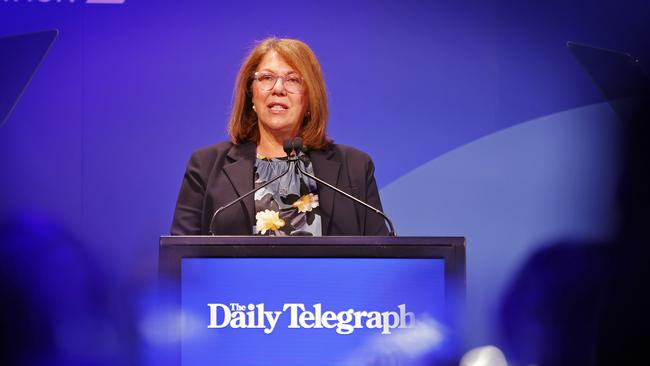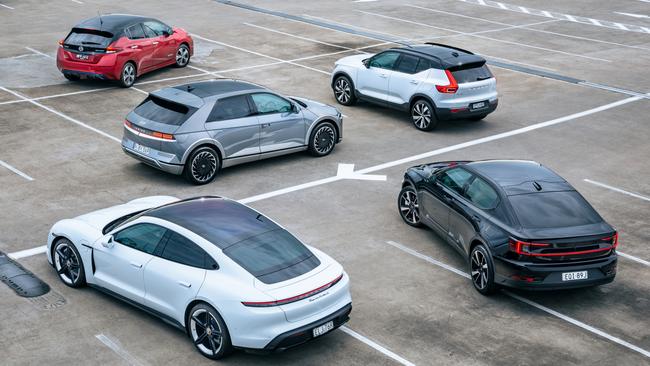Government green lights Fuel Efficiency Standard
Car makers will be forced to meet new fuel efficiency standards under a new EV policy designed to steer buyers towards greener vehicles. See how it affects you.
Motoring
Don't miss out on the headlines from Motoring. Followed categories will be added to My News.
The Federal Government will introduce a fuel efficiency standard to force car makers to reduce their CO2 emissions.
The new standard, which will form a centre plank of the government’s EV policy, is expected to include penalties for makers who don’t meet CO2 reduction targets.
The plan will bring Australia into line with the rest of the world in having enforceable CO2 emissions standards.
Climate Change and Energy Minister Chris Bowen said the standard would give new car buyers better choices of environmentally friendly vehicles by encouraging manufacturers to send their most efficient cars to Australia.
“This is ultimately all about giving Australians better choices – better choices of cars which are better for the climate and better to drive and more cost-efficient. A petrol vehicle on average costs around $2400 per year to drive; an electric vehicle costs around $400 a year to drive, so a saving of $2000,” he said.

At the moment electric vehicles can cost up to $20,000 more than their petrol counterparts, although most states offer subsidies of between $3000 and $5000 to EV buyers.
The cheapest EV available is about $45,700 drive-away.
Mr Bowen acknowledged the high upfront costs of EVs.
“Now, obviously a lot of electric vehicles are at the more expensive end of the spectrum at the moment. That is true. But it’s also a result, a direct result, of a lack of policy,” he said.
He said that countries with fuel efficiency standards had a bigger range of affordable electric vehicles.
“We want people of all walks of life, regardless of where they live, regardless of their income, to have the chance to consider buying an electric vehicle, to weigh it up for their own purposes and best interests, and fuel efficiency standards will play a big role in doing that,” he said.

The effectiveness of the fuel efficiency standard will depend on how hard the government is prepared to push the industry to improve the efficiency of utes and large four-wheel-drives, which make up four out of every ten new vehicles sold.
Up until now, the industry hasn’t even been able to meet its own voluntary emissions standard for larger vehicles.
Mr Bowen said the formulation of an emissions standard would take “detailed consultation” with the car industry, which is likely to push for lenient targets that recognise Australians penchant for big, thirsty diesel utes and 4WDs.
The industry argues that there simply aren’t viable low-emission alternatives to the popular Ford Ranger and Toyota HiLux, which are the country’s top-selling vehicles.

Transport Minister Catherine King said the standard wouldn’t hasten the disappearance of utes and four-wheel drives.
“What fuel efficiency standards don’t do is they don’t mandate that you have to get rid of your ute, they don’t mandate that you have to get rid of your diesel car. They don’t mandate the sort of car that you have. What they do is they provide an incentive for car manufacturers to send their latest and cleanest vehicles here into Australia,” she said.
She said there was strong demand for electric vehicles but a lack of supply was hampering growth.
“People are waiting a long time to get access to their vehicles and the range of vehicles that are available for them is just not there,” she said.
Australia was already “a decade behind” where it should be on fuel efficiency standards, she said.

The Electric Vehicle Council welcomed the efficiency standard but called on the government to act “swiftly and boldly to calibrate and enforce Australia’s fuel efficiency standards”.
EV Council chief executive Behyad Jafari said Australia had a long way to go to catch up to the rest of the world on electric vehicle policy.
“If we squib it on the detail Australia will remain the world’s dumping ground for dated, high-emission vehicles,” he said.
“Having fuel efficiency standards in Australia in line with global markets will save motorists hundreds of dollars on fuel each year and give them more affordable electric vehicles to choose from.”
Mr Bowen said the strategy would also include investment in EV charging infrastructure.
“We’re getting on with the job of … rolling out electric vehicle chargers once every 150 kilometres on a national highway.
The government will begin a six-week consultation period to develop the new standard.
Originally published as Government green lights Fuel Efficiency Standard





